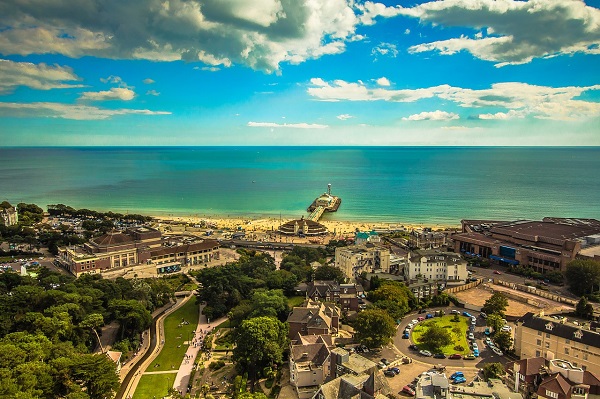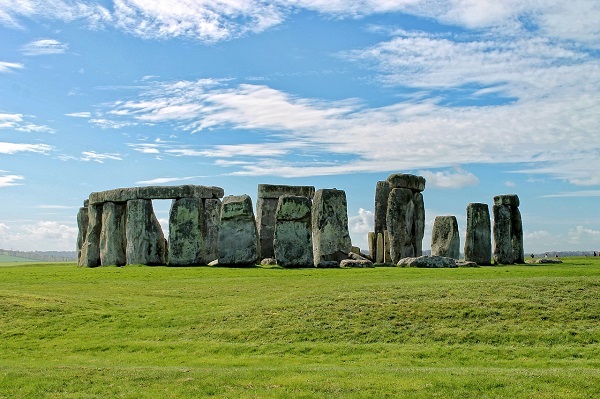
Why study International Tourism in the UK?
‘Tourism is a global industry that will need a better qualified workforce’
Today, International students have an exciting and wider range of options to study travel and tourism than ever before.
The UK Higher Education institutions have considerable motivation and investment in recruiting bright, open minded and a diverse student body. They want to recruit students to benefit from an international experience that will, and should be life changing?
The UK is a world leader in developing travel and tourism courses that are both academic and directly linked to the vocational needs of the industry.
Your decision to undertake a course in Travel and Tourism should be based on some key fundamental questions.
Firstly, ask yourself how you may benefit from three to four years of academic study of a subject that is truly going to be global in having an international impact?
What excites you about these courses beyond travel? (I have met few students who do not like travel!)
How would you make a difference and what experience can you gain from, as well as contribute to the course?
You should enquire how far the academic curriculum is developed and supported with tourism industry expertise. This can range from regular guest speakers, company visits, and established sponsorship and awards.

Secondly, the location of your choice of course is an important factor to consider from the outset. Would you be comfortable and challenged by a course in a big City with many students? Or would you prefer a smaller town or rural area? For example, London as a city requires you to be fairly independent from the start, in both mind and spirit. While a smaller campus may have fewer students, you would have the advantage of being known by tutors and fellow students by name. (Would you like to be known as a number or by name ?)
Thirdly, remember when researching your choice of course, do take the time to research the structure and content of modules. Do they excite you? As tourism is fundamentally a Business, you should expect to study a range of so called, functional areas of management. From Economics, Finance, Human Resources, Data Management and Marketing, alongside your tourism subjects.
Some courses emphasize the Social Cultural Impacts and Environmental aspects, while others consider Enterprise and Business Strategy to be significant.
You may or may not have studied these subjects before going to University, but do enter these with an open mind. Do your preparation, and ask yourself, how will these subjects contribute to my future career path?
Can you really manage a business and people if you do not grasp the significance of sound financial budgeting and people management?
Fourthly, to advance your future career prospects, you should seriously consider a paid internship, often called an industry placement, as a part of your course. This period of employment provides you with exposure to the insights and a real appreciation of the way the travel and tourism sector functions? It may not be your intended choice of final career, but your experience will significantly contribute to your graduate skill set, as well as to give you the edge over others when applying for future posts in travel and tourism.
This is increasingly recognized by employers as a way of identifying graduates that have gained experience and confidence, and are motivated and ready for employment.

Fifthly, from the very start you must recognize that the travel and tourism industry is a highly competitive, and at times, a vulnerable and volatile sector. To survive, the industry needs people who are positive, flexible and increasingly professional in the way the deal with others. If you are able to demonstrate how you have developed and improved your customer focused skills, this will be a valuable skill in an industry that is striving to, not just meet, but ‘exceed’ future customer experiences and expectations.
Sixthly, when you are applying for a course, never be afraid to ask questions that are directly important to you. (If a course tutor does not reply in reasonable time to your questions, are they that interested in you as an individual ?)
While websites on courses all provide some very positive messages, your challenge is to identify where your mind and skills and best be challenged and developed?
Do ask how many and what their graduates do within the travel and tourism sector, and where do the past International students gain employment? Again, do ask for specific examples.
Enquire why the course is attractive to International students from different countries, and what support you can expect during and after your studies and across the campus.

What clubs and societies are active and reflect your own current interest, in addition to future ones you may wish to take up? Whatever it is, be sure you play an active part by organising and getting involved. This is a great way to meet new friends outside of your course of study.
What options are open to International students for a period on Study abroad and exchange opportunities? These are increasingly becoming popular and many Universities have developed very exciting combinations to study tourism subjects, with six months in America and Asia, Europe, Australia and Africa.
Try and find out the range of support you can expect from the University careers departments during your time studying, as well as after you graduate. What type of support will you get for finding employment and help for job interviews?
Do ask about any scholarships that are available to International students at the start and during your course, as well as how early do you qualify for these?
Are residential field trips part of the course and if these are included in the fees? You may need to budget for these additional costs, but the returns provide you with a long lasting experience and provide an excellent opportunity for getting to know your fellow students and tutors, as well as researching and investigating in a structured way, unique aspects of international tourism in the destination.
Take time to ask questions about the current Research the tutors are engaged in or do they just teach? Does this Research interest you? It could be a future area to follow up with Post graduate studies or even a Phd in the future.

Enquire whether a final year project, so called Dissertation is a compulsory or an optional module. Again, this aspect of the course is designed to challenge you to identify and further develop your own interest in travel and tourism, that will equip you with an in depth appreciation of the sector, in addition to demonstrating your capacity to undertake academic and independent research.
Your tutors are highly motivated to ensure you have an excellent student experience at University and all UK institutions provide league tables to highlight that student experience. However, do not be ‘fooled’ by this data, but I would encourage you to get beyond the data and ask questions as to how these scores are achieved, high or low ! Do remember, that these are only one simple measure of current student experiences.
Also, do remember, that in your time studying, you must also contribute to the student experience and take advantage of the many exciting and beneficial opportunities that a course in travel and tourism offers.
Enquire if they have an active alumni association? This is your future network that you can contribute to and benefit from, long after you have graduated from your course.
This may all seem a bit daunting from the outset, but once you have dealt with visa application and numerous admissions procedures. Do take the time to reflect and ask yourself whether you are ready for the challenges and rewards of an International Education in Travel and Tourism?
A few final thoughts and personal tip. Regrettably, from time to time you may hear negative views and opinions about the nature of Tourism qualifications, opportunities and career prospects within the industry. I would urge you to politely ignore these views and take pride in gaining a recognised academic qualification, that is equipped with professional skills to be employed in one of the most rewarding and exciting global business, that is Travel and Tourism.
Finally, I wish you well in your research into the choice of your course in travel and tourism in the UK and that you embark on an exciting, challenging and rewarding future.
Brandon Crimes FTS, FITT. FHE
Director of Research
Tourism Matters.
Executive member : Association of Tourism for Higher Education
